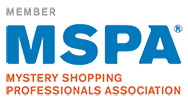NW Loss Prevention Consultants Blog
 Doug Rector
Doug Rector
Compliance with One-Party vs. Two-Party Consent States
When implementing a telephone mystery shopping program, it’s crucial to ensure compliance with state recording laws in the U.S., which vary based on one-party consent and two-party consent regulations.
One-Party Consent States:
In these states, only one party involved in the conversation needs to consent to the recording.
The mystery shopper (as one of the parties) can legally record the call without notifying the customer service representative.
Examples of one-party consent states: Texas, Florida, and New York.
Two-Party Consent States:
In these states, all parties in the conversation must give their consent to the recording.
This means both the mystery shopper and the employee must be informed and agree to the recording.
Examples of two-party consent states: California, Massachusetts, and Pennsylvania.
Our Professional Associations






